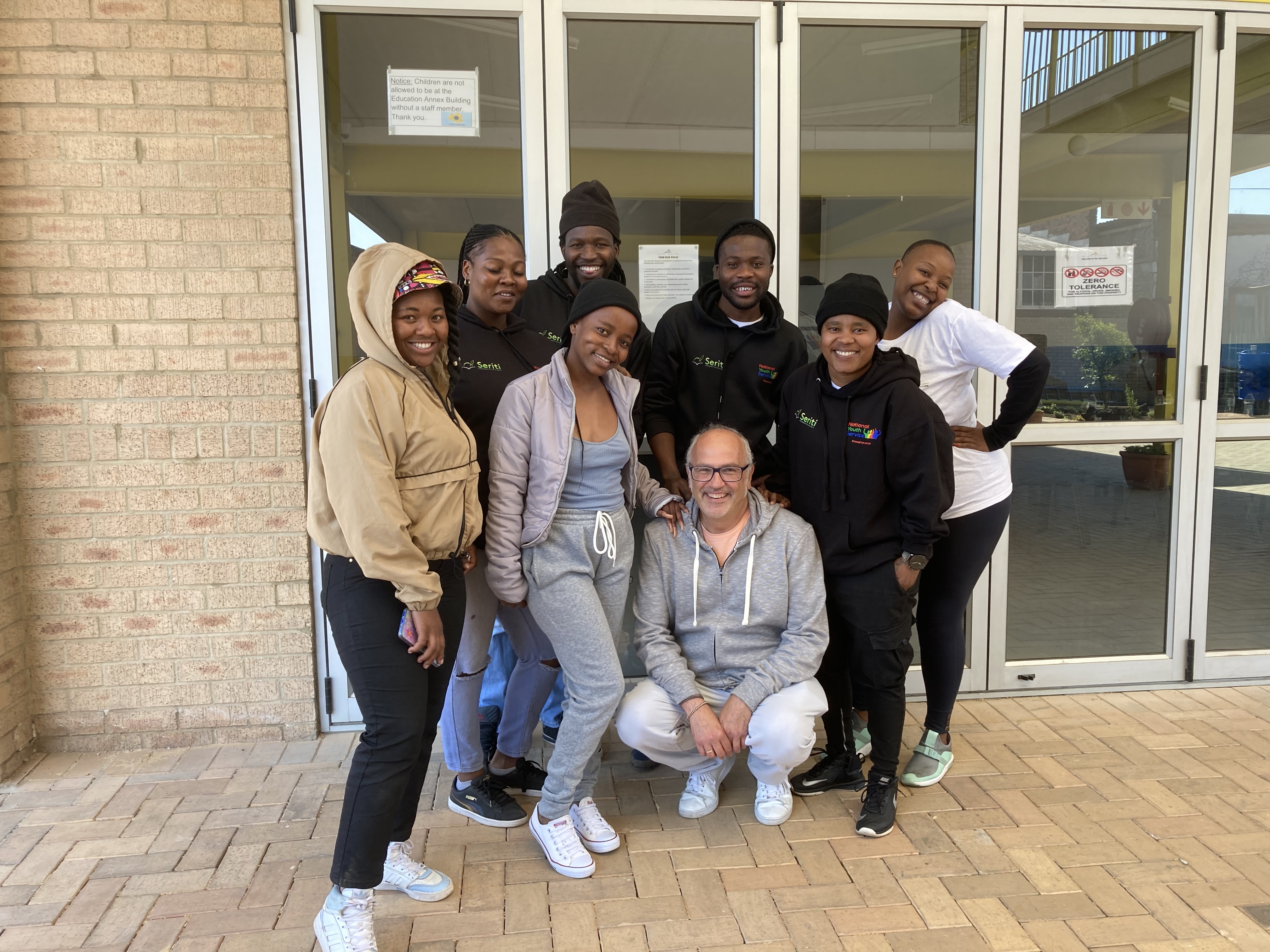World Health Organization
WHA78: Member States highlight the crucial role of the GCM/NCD in driving multisectoral and multistakeholder action on NCDs
Meaningful Engagement of People with Lived Experiences
27 May 2025
World Health Organization | 11 Dec 2024
In townships and informal settings in the Ekurhuleni Metropolitan Municipality of Johannesburg in South Africa, family and community violence, labour or sexual exploitation, and socioeconomic disadvantages pose major physical and mental health risks for children and young people. Depression, anxiety and behavioural disorders are among the pressing mental health needs of young people and their families. Yet, access to counselling and mental health promotion and care is severely limited in this resource-constrained setting, while widespread community stigma, missing awareness and support from parents and peers, and insufficient mental health services further complicate appropriate prevention and care.
The group therapy sessions we organize with Kids Haven allow us to openly address anger, loneliness, and suicidal thoughts, as well as mental health challenges related to players’ sexual orientation. This makes a major difference to me as a coach and to the players, and our team has since had notable success on the field and in improving players’ wellbeing.”
Lesley Netshirembe, Coach and founder of the Volovolo Young Killers Academy
Kids Haven has successfully developed a low-cost, cascading mental health promotion approach and service transformation framework to under-resourced communities in urban settings around Johannesburg. Co-designed with young people and their families and leveraging a train-the-trainer approach, the project’s focus is on integrating mental health information and support into existing community programmes and leisure activities. This directly strengthens first-line mental health support capacity, ensures effective referral pathways and builds new awareness for mental health and child protection issues in the community.

Kids Haven mental health team members. Photo: Kids Haven
Kids Haven’s train-the-trainers course consists of four modules, covering fundamental mental health concepts, common child mental health problems, psychological interventions, and community engagement. Youth and community leaders completing the course then engage their peers to co-design plans to strengthen delivery of mental health promotion and psychosocial counselling, typically by integrating mental health interventions as part of existing community and leisure activities. The service plans include activities to build emotional literacy and reduce stigma, engage family members and peers, as well as a mapping exercise of available mental health services and referral pathways. Kids Haven’s trainers receive continued support from the project team and can rely on mental health experts when advice or referral are required.
Cascading what I have learned in the Kids Haven training has helped me build trust with my team, be a point of contact for young people who may need support, and better identify players who may be experiencing mental health challenges. This helps me create a positive and engaging environment through soccer and off the playing field.”
Bongani Khumalo, head coach and tutor at the Phakamisa Ikasi Lakho Tutors Academy in Katlehong
In its initial phase, Kids Haven trained four community facilitators who then engaged some 330 young people and peers. The facilitators also worked with young mothers attending ante-natal classes, with young people involved in a community work-scheme, and with teenagers attending workshops to prevent gender-based violence. With continued support from the four facilitators, participants went on to design and run follow-up and community support activities. Thirteen mental health service providers were mapped out by the project team to improve access to care. The implementation and impact of the project has been documented in a qualitative research study.
Building on these promising results, Kids Haven is now partnering with In2Position NPC, a local sports programme working with coaches of all ages in school-based and club soccer teams across regional townships in Gauteng province. In May 2024, the Kids Haven trainer team offered a first information session on child development and associated mental health concepts to the sports coaches. The project cascading methodology is now being applied to disperse from coaches to young players and their families, further integrating mental health information and support into daily leisure activities.
A radical shift in global public health is needed to avert millions of preventable and premature deaths from noncommunicable diseases (NCDs), including cancer, diabetes, cardiovascular disease, chronic respiratory disease, as well as mental health conditions. Primary health care (PHC) approaches present an important opportunity to transform and innovate how NCD and mental health services are delivered. For its 4th cycle, the NCD Lab – a WHO platform promoting promotes grassroots innovation for NCD prevention and control – called for innovative solutions that strengthen the delivery of NCD and mental health services using the PHC approach. From the more than 80 projects submitted, five promising innovations were selected to be included in the growing global portfolio of leading NCD innovations and receive tailored support to enhance impact and achieve scale.